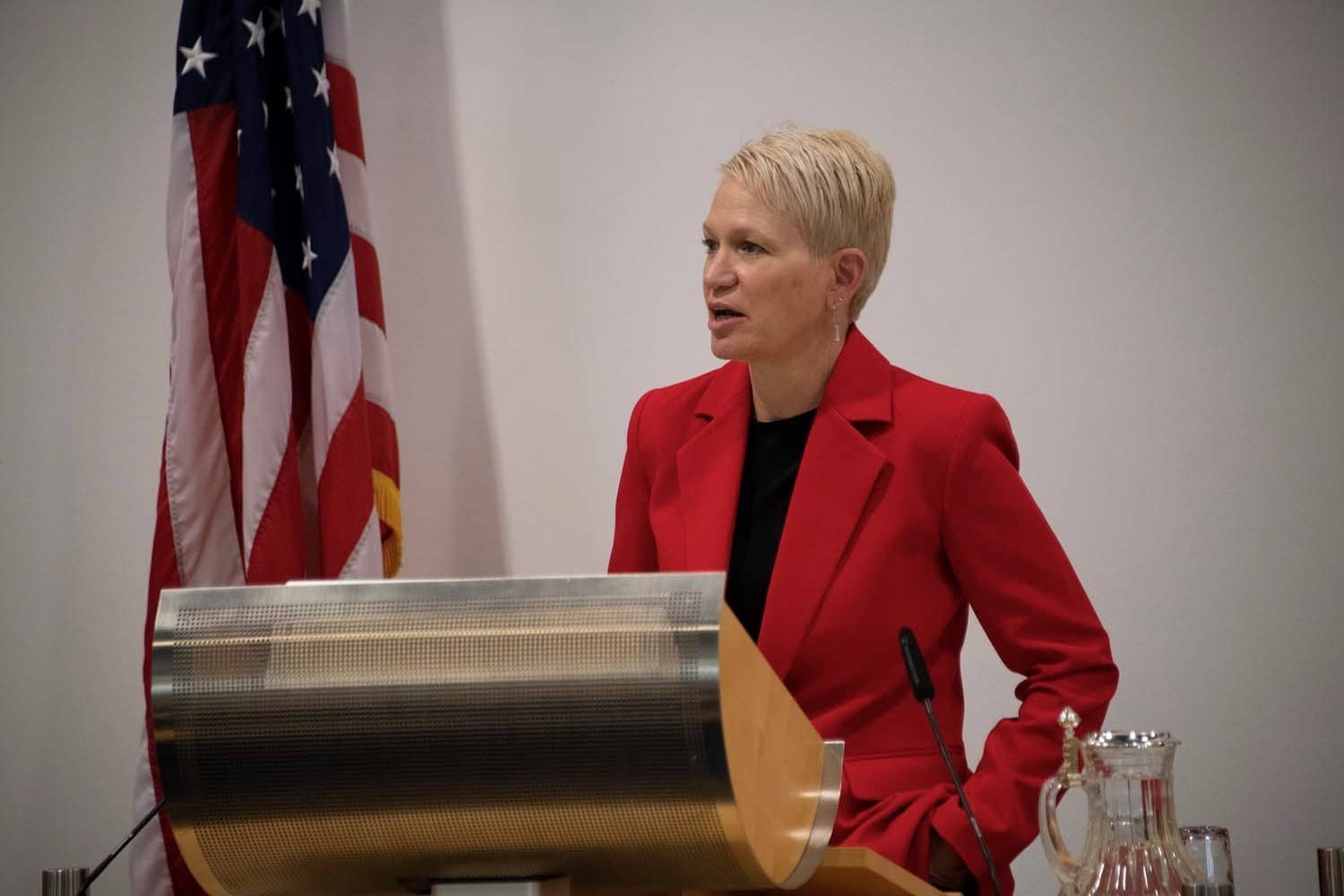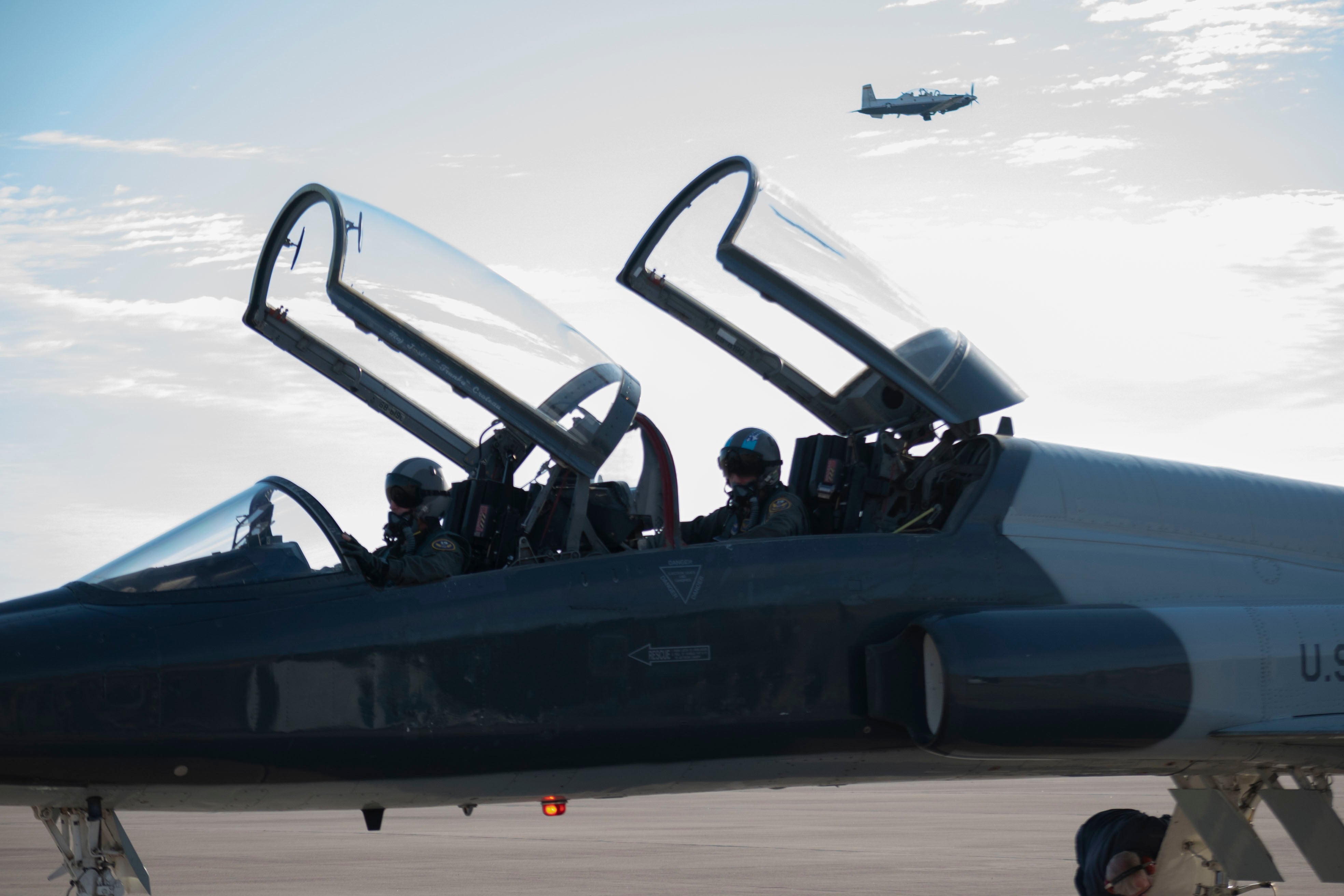GARMISCH-PARTENKIRCHEN, Germany – Dr. Celeste Wallander, president and chief executive officer of the U.S. Russia Foundation, talks about "Us and Them, Washington D.C. View, and Them and Us, Moscow's View" during the European Security Seminar-East June 10 at the George C. Marshall European Center for Security Studies. (DOD photo by Karl-Heinz Wedhorn/RELEASED)
In the ongoing discourse surrounding international security and defense, the U.S. military aid to Ukraine emerges as a pivotal element of strategic significance, not only for the involved nations but for the global order at large. The recent discussions in Congress regarding the continuation of this support underscore the critical nature of the aid in the broader context of international politics, security dynamics, and the preservation of the established international order.
The genesis of the current situation can be traced back to February 22, 2021, when Russian forces initiated an invasion of Ukraine. Despite the numerical and technological superiority of the Russian military, Ukrainian forces demonstrated remarkable resilience. They successfully thwarted attempts to capture Kyiv, safeguarded Kharkiv—the nation's second-largest city—and effectively resisted Russian advances in the southern and eastern regions. This resistance has been significantly bolstered by the United States' provision of $43 billion in aid, encompassing a wide array of military support ranging from Javelin missiles and tanks to medical supplies and sophisticated air defense systems.
The assistance rendered by the U.S. is grounded in a strategic calculus that extends beyond the immediate geopolitical contestation in Eastern Europe. From the perspective of the United States, and articulated by Celeste Wallander, Assistant Secretary of Defense for International Security Affairs, the support for Ukraine is a multifaceted endeavor aimed at preserving Ukraine's sovereignty and independence, supporting the Ukrainian populace's aspirations for freedom, and maintaining the integrity of the international order.
The conflict in Ukraine is not an isolated regional issue but a flashpoint with profound implications for the global security architecture and the principles governing international relations. The Russian aggression represents a direct challenge to the post-World War II international order, predicated on the sovereignty of nations, the prohibition of territorial acquisition by force, and the collective security arrangements encapsulated in the United Nations Charter and other international treaties, including the Nuclear Non-Proliferation Treaty.
The ramifications of the conflict extend well beyond Europe. The war in Ukraine serves as a litmus test for the resilience and efficacy of the international order against unilateral aggression by a major power. The outcome of this conflict is closely monitored by other global powers, notably China, which has its geopolitical ambitions and observes the international community's response to Russian actions. The support for Ukraine, thus, transcends bilateral relations and touches upon the foundational principles of international law and order.
Beyond the strategic and geopolitical considerations, the human toll of the conflict underscores the moral imperative behind supporting Ukraine. The Russian invasion has been characterized by brutal tactics, including indiscriminate attacks on civilian infrastructure and the forcible transfer of Ukrainian children to Russia, evoking comparisons to some of the darkest chapters of 20th-century European history. These actions not only constitute grave human rights violations but also underscore the necessity of a robust international response to deter further aggression.
The United States, under the leadership of Secretary of Defense Lloyd J. Austin III, has galvanized an international coalition in support of Ukraine, exemplified by the Ukraine Defense Security Group. This coalition, comprising 50 nations, symbolizes the collective will to uphold the principles of sovereignty, territorial integrity, and international law. It is a testament to the international community's commitment to counteract attempts at undermining the established global order.
As the conflict continues, the international community's resolve remains a critical factor in supporting Ukraine's struggle for sovereignty and territorial integrity. The strategic importance of U.S. aid to Ukraine cannot be overstated, as it serves not only as a lifeline for the Ukrainian resistance but also as a bulwark against the erosion of the international order. The ongoing support reflects a comprehensive approach that combines military, diplomatic, and humanitarian efforts to ensure a sovereign, independent, and secure Ukraine.
The U.S. military aid to Ukraine is a crucial element in the broader struggle to preserve the international order against unilateral aggression and attempts to redraw international boundaries by force. It is a manifestation of the United States' commitment to international law, the sovereignty of nations, and the collective security arrangements that have underpinned global stability in the post-World War II era. As the international community continues to navigate the complexities of the Ukraine conflict, the strategic, humanitarian, and moral imperatives of supporting Ukraine remain paramount.





Leave a comment
This site is protected by hCaptcha and the hCaptcha Privacy Policy and Terms of Service apply.